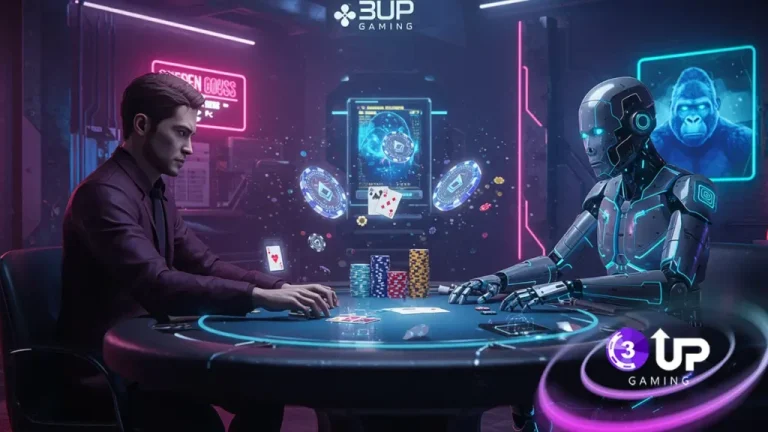Poker Bots: Cheating or Smart Play? The rise of AI and automation has brought poker bots into the spotlight, raising the controversial question: are they a form of cheating or just a smart use of technology? A poker bot is a software program designed to play poker automatically by making decisions based on game theory, probability, and opponent behavior. While they can analyze large datasets faster than any human, their presence in online poker platforms creates significant ethical and competitive challenges. Most players and platforms consider bots to be unfair because they can play flawlessly for hours, never tilt emotionally, and exploit weaker opponents, which goes against the spirit of skill-based competition in poker.
Poker Bots: Cheating or Smart Play?
That said, some developers argue that poker bots aren’t inherently unethical, it depends on how they’re used. For instance, in private simulations, training environments, or as part of AI research, bots are valuable tools that help improve strategies and deepen understanding of game dynamics. Platforms that operate transparently and use bots in regulated, disclosed contexts, such as “play with AI” training tables—may add educational value without compromising fairness. However, when bots are deployed covertly in real-money games against unsuspecting human players, they become a clear violation of most site terms of service.
Leading poker software providers like 3UP Gaming have responded to the bot dilemma by building advanced anti-bot systems that detect abnormal patterns, behavior repetition, and unfair advantages. With the integration of AI and blockchain, modern poker platforms can now track digital footprints, ensure player authentication, and maintain a level playing field. So while poker bots may seem like smart tech on the surface, their use in real-game environments is widely considered cheating unless transparently implemented with strict safeguards.
Fundamentally, they’re software applications… Think of them as automated players. Some bots use real-time solver tech… They try to mimic game theory optimal GTO decisions as the hand is playing out.
Now they can challenge and sometimes even beat really top human pros. The jump from those simple early programs to today’s AI is huge… It’s this high-stakes battle between the bot creators and the sites trying to stop them.
What Are Poker Bots and How Do They Work?
Poker bots, in their most basic form, are software applications that play poker games automatically. Entirely devoid of human intuition, they can, without fatigue or emotion, read betting patterns, evaluate cards, run the odds and decide what the best course of action is in real time.
Bots, mainly used in online poker rooms, where they can take a seat in games just like human players are frequently run by people or groups looking to make as much money as possible, running a number of bot accounts at the same time. That said, not all poker bots are made equal.
A few poker bots work by using:
- Rule-based decision trees, following obliging strategies like tight-aggressive play
- Mathematical models, factoring in pot odds, bluff frequencies and range estimations
- Database mining, dissecting thousands of hands to refine their decisions
- Real-time solvers are a hotbed of contention, essentially re-enacting the best decisions made in a live hand.
Basic poker bots began appearing in the early 2000s and were fairly easily beatable as history would have it. But these days, there has been a remarkable leap in AI-enhanced poker bot software. In fact, some bots have outperformed professional humans in heads up No Limit Hold’em matches, upping the intensity in both competitive play and ethics discussions.
The closer we get to an era of blurred lines between automation and intelligence, the closer we will come to addressing how we define fairness. That is where the more important questions come from.
The Rise of AI in Online Poker Rooms
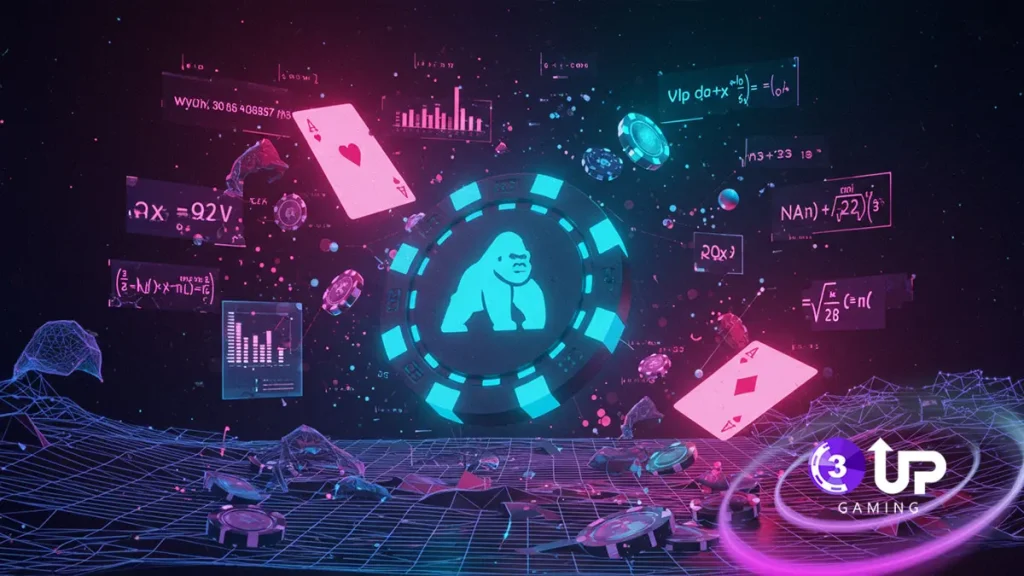
Milestone AI Bots
One of the biggest changes in online poker, not just in terms of gameplay but also how poker rooms run, protect themselves and develop is artificial intelligence. What started as simple bots grinding low stakes cash tables has now turned into a high tech arms race between AI tools and anti-AI systems.
The turning point was 2017 when Libratus, an AI developed by Carnegie Mellon, beat elite human players in heads-up No Limit Holdem over 120,000 hands. This was no fluke. Unlike earlier bots, Libratus adapted on the fly and optimized its bluffing ranges with surgical precision.
Libratus… really shook things up by beating several top pros… Pluribus beat multiple pros at the same time in a six-player game. Modern bots are often designed to mimic human play… faking misclicks now and then. Sites use AI for security… but also for positive stuff, like offering coaching tools.
In 2019 Pluribus, its successor, upped the ante again by beating several pros at the same time in 6 player games, something that was thought to be impossible.
AI vs Human Players
As AI becomes more accessible and poker solvers like PioSOLVER or GTO Wizard become mainstream, it’s not just researchers pushing the boundaries. Players are now integrating GTO based decisions in real time. In the meantime some poker bots claim they can mimic human timing and deception to evade detection and step into the gray area of humanized automation.
Online poker rooms have responded by upgrading their surveillance systems and in some cases banning real time solvers altogether (GGPoker did in 2022). But the battle isn’t binary. AI turns the same technology from a threat to a tool by being used for security monitoring, coaching and hand reviews.
AI’s rise isn’t just a technical change. By combining strategy, surveillance and science fiction it redefines what poker means in the digital age.
Leverage the resources built to bridge the gap between player ethics and advanced tech to play better, more honest poker.
Grasp more of: Top White Label Options for Poker Networks in 2025
Don’t miss this: How Bots Are Changing the Game of Online Poker
When Does Using a Poker Bot Cross the Line?
Ethical Boundary
There are some who think it is politically incorrect to use them to cheat in any way, and in many cases, the use of these bots will be considered immoral. A bot, as far as cheating is considered, usually depends on when, where, and what acts in the case of its use.
The bot in use is just being used by oneself to study hands or to create play ranges? That would probably be just a very smart training tool.
The bot playing quietly on real-money tables for sweeping wins against other innocent players? Such a thing is deceiving.
Policy of the Platforms
These days, most major poker rooms have policies very strict against using automation unsanctioned, with violators getting banned and their winnings confiscated. GGPoker and PokerStars, for example, prohibit at least explicitly the use of software for real-time decision-making during live games.
Some of the indications of that uses of poker bots may be becoming unethical or illegal:
❌ Bot plays without disclosure on live, real-money platforms
❌ Real-time decision-making, not post-session analysis
❌ It imitates human behavior to escape detection (timing, emotes, misclicks)
❌ Mass multitabling and colluding across accounts
❌ Breaking site TOS and local gambling laws
At the core is unfair advantage. Poker is basically a mind game, and the moment that a bot imbalance this equilibrium, it is the death of poker integrity.
Using bots to secretly play for you against others, that’s seen as fundamentally wrong, against the spirit of poker. The deception… you’re creating an uneven playing field without anyone knowing. Using tech to learn is worlds apart from using it to cheat.
Find your time with: Boost Player Growth with Poker Affiliate System Software
Easy road that you build? Buy User-Friendly Poker Software
Arguments for Poker Bots as Strategic Tools
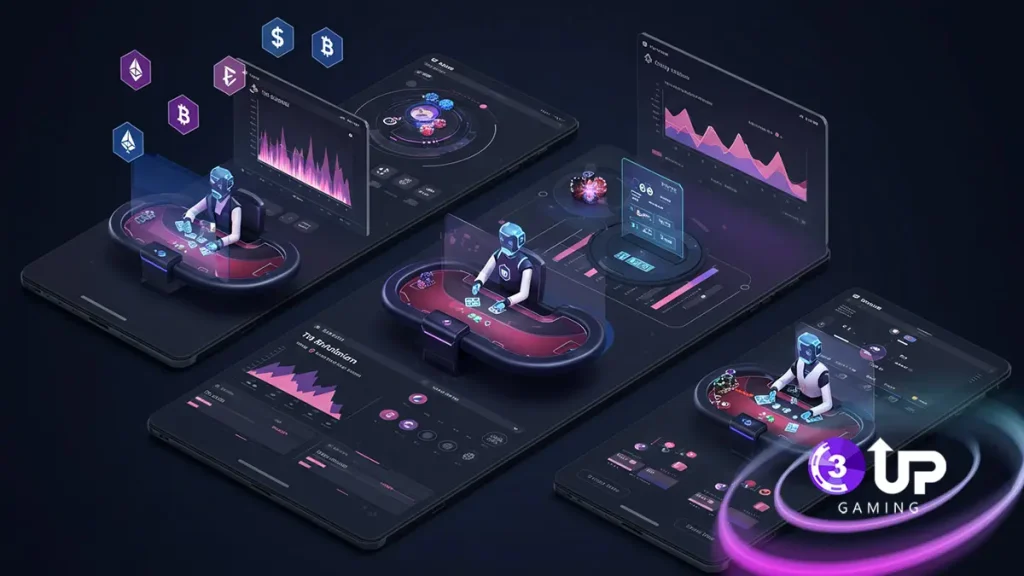
Training with Bots
Opposite to their widely perceived negative reputation, poker bots are not necessarily evil — some even say they can sort of assist in the learning process if used the right way. For serious players, the clients of AI software have been virtual opponents in the past to present hand situations and decision trees, enabling refinement of their strategies on considerations.
✅ Bots help players recognize and fix repeated leaks by modeling Game Theory Optimal (GTO) play.
✅ They act as training bots mimicking tough competition to create pressure scenarios for any player going solo.
✅ Difficulty levels can be adjusted according to how much pressure the player wants to practice with, without actually risking any real cash.
Strategy Analyzing
Although usually used post-match, bots can point out missed opportunities, reveal leaks in betting lines, and unveil exploitable patterns much like a chess engine does for grandmasters.
✅ They track hand histories and indicate spots where your bluffing or folding may have shown weakness.
✅ They can simulate alternative outcomes based on your moves.
✅ If used in the right spirit, these tools greatly steepen the learning curve of a player, especially in case of novices and intermediates.
So the line is crystal clear: Using poker bots as an aide or coach is miles apart from using them as a direct competitor. When removed from live table action, the bot ceases to be an opponent and becomes a friend of fair play.
The tool points out mistakes, missed opportunities… patterns you might miss yourself. Poker is supposed to be a mind game, right? Psychology, reads, bluffing… Bots just bypass all that with cold calculation. Unchecked, they can just destroy trust and dry up the games.
Offend before your bot scandal discredits you. Align with a fair play platform.
Ethical Considerations: Fair Play vs. Automation
Fair Play Principles
Essential to poker are human psychology, bluffing, and reads; automation destroys that foundation and raises issues: Is it still poker when a machine is involved in the decision-making?
- Transparency intrigues: Does the opposing player know he is competing against a bot?
- Mutual trust: The social contract of poker requires a fellow human experience.
- Skill vs. script: Poker rewards intuitive strategy, not mechanical repetition.
Automation Impact
Bots may push the skill ceiling for some, and, unchecked, they may extinguish trust and depress game liquidity. The regular players, those of middling skills, suffer the most from automated edge-seeking.
- Automated accounts can chase away users if they feel somehow outmatched or cheated.
- A platform that allows such bot activity risks its reputation and attracts regulatory negative attention.
- Ethical automation has to have clearly defined boundaries and be put into practice honestly.
Above all, the ethical interrogation of the bots is about how automation is to be used, rather than whether it exists at all. They may sometimes be vague, but each serious player and operator must honor the line between fair play and mechanical domination.
The line seems pretty clear: is the tool teaching you, or is it playing for you? Machine learning systems trained to spot anomalies… teaching AI what human play looks like so it can flag what doesn’t.
Walk on the line by: How to Buy Real Money Poker Apps Safely
More on that in How to Build a Secure Online Poker Platform
Or perhaps a Podcast about: AI and Poker: An Ongoing Arms Race – The Verge
How Poker Sites Detect and Ban Bots
Detection Techniques
Poker sites are getting much more aggressive and tech-savvy with the use of bots. With growing upsurges from regulatory bodies and from professional players, the detection of poker bots has ceased to be a hunch and has become full-fledged science.
The bigger networks today will use:
- Behavioral analysis that tracks timing, betting patterns, speed of decision-making, and multitabling habits that appear too consistent or inhuman.
- IP and device fingerprinting to discover duplicate accounts or in some cases, hidden accounts, particularly under the guise of a VPN or proxy.
- Client-side monitoring tools that monitor the user’s device to detect unauthorized third-party programs or unusual background activity.
In some cases, very advanced detection has AI watching other AI: those machine-learning systems that are trained to identify statistical anomalies and gameplay outside of expected human behavior.
Enforcement Actions
Once detected, the consequences become swift and severe:
- Permanent bans
- Seizure of funds
- Account blacklisting across multiple networks (via data-sharing agreements)
Some sites publish transparency reports to show enforcement, while others conduct bans under the radar to avert backlash.
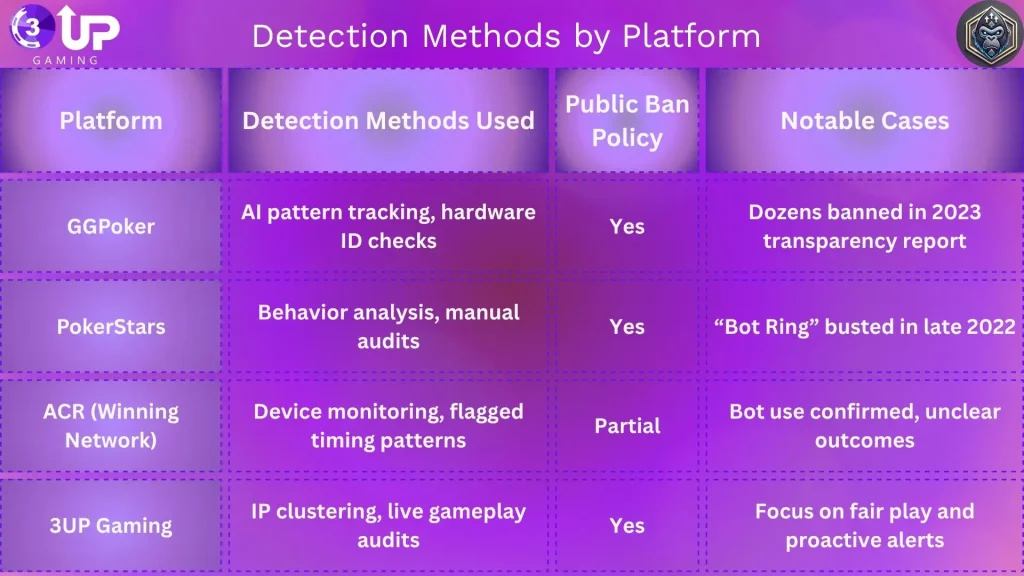
Despite their flaws, these systems are rapidly getting better. Additionally, platforms now face greater consequences for ignoring bot detection: lost players, potential legal issues, and damaged trust.
PokerStars sued a developer in Sweden who was selling bot software. PokerStars won, got a payout and shut them down. Regulators in the UK, Malta, New Jersey… require licensed sites to have strong anti-bot measures in place, or risk losing their license.
Do you ever think if one can use poker bots for training (to be like a pro) ethically? Let’s talk about strategy.
Capture what you need with: Building Scalable Poker Platforms: Software Architecture Guide
Want smarter decisions? Bitcoin Poker UI Wins Big in 2025
Impact of Bots on the Poker Ecosystem
Player Trust
Trust is basically the ecosystem of poker. It is accepted by all players that the rules are the same for all. That there is fairness in the game and that results are determined by skills and chances, not secret scripts. Therefore bots break that very foundation.
Beginners churn more after a few hands against those invisible, nearly perfect opponents.
Burn-out even in mid stakes grinders because sometimes they’re really not sure if they’re competing with a wide-eyed human or an algorithm.
Bot rings are suspected regularly by communities on Reddit, 2+2, etc. Such sudden outbursts can destroy a brand’s reputation.
Economic Impact
Not only do they change the nature of the game, but they also change the nature of the economy around it.
- Bots can drain the player pool by vacuuming value away from less-experienced users.
- High-frequency bot accounts create unnatural liquidity cycles that skew rake models and bonus schemes.
- Sites known to have bot problems very often experience the collapse of affiliate programs because referrers flat out refuse to send players into such a broken ecosystem.
- Worst of all, bots can actually depress traffic, which affects ad revenues, partnerships, and growth forecasts.
Unchecked automation is an existential threat to the economics of a site, the integrity of the game, and its very long-term sustainability. It is more than an inconvenience.
Bots don’t get tired. They don’t doubt themselves. They can process insane amounts of data and execute strategies without faltering. What are those unique human skills bots can’t replicate? Bluffing. Psychological reads. Adapting to weird, unpredictable play.
Legal Risks and Consequences of Using Bots
Legal Cases
Some still see poker bots as a minor technicality, but authorities are now viewing them as a major breach of fair gaming rules especially when real money is involved.
In many jurisdictions using or deploying a poker bot can result in:
- Account bans and fund seizure (standard)
- Civil lawsuits for breach of contract (TOS violations)
- Criminal fraud charges in extreme cases
In 2015 PokerStars sued a Swedish developer who sold bot subscriptions and got a big payout and a permanent ban. Since then sites have been working with legal teams to chase bot creators across borders.
Regulatory Stances
As part of license compliance some gaming regulators like UK, Malta and New Jersey now require operators to have anti-bot systems. Failure to do so can result in license suspension or fines.
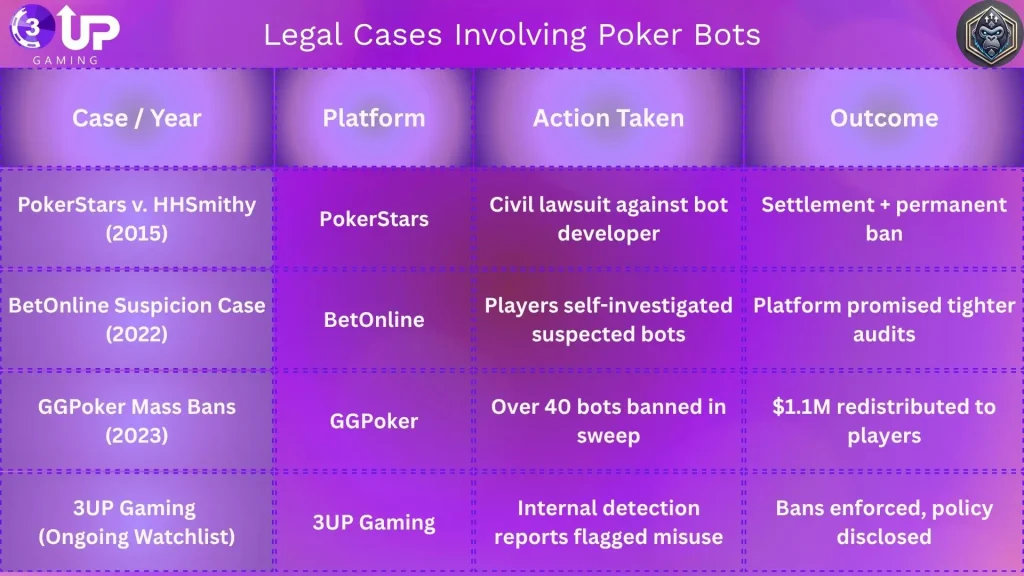
The message is clear whether you’re a player, platform, or bot developer: this is a regulatory hotspot, not a legal gray area.
Don’t know how AI fits into your poker app development? Learn how 3UP Gaming uses smart detection now.
Learn the difference: Lunch Your Own Poker App with a White Label Solution
Don’t miss this: AI vs Humans: Who Wins at Poker in 2025?
Are There Any Approved or Legal Use Cases?
Approved Training Tools
Different types of poker bots are allowed by site policies or for the purpose of enhancing player skills and thus are usually prohibited. These bots do not work on real-time games and are known for their educational purposes.
✅ These include GTO solvers like PioSOLVER, GTO+, or Simple Postflop that are widely used for studying optimal play modalities.
✅ Replays of hands can also be used for coaching or training groups, the Replay Bot does exactly that.
✅ Sandboxed AI tools tend to be used for private and offline simulations, both by amateurs and pros.
This type of tool is not interfering in live gameplay and does not deceive players, thus being considered acceptable in most jurisdictions from both legal and ethical standpoints.
Research Uses
Great leverage was given to AI development in poker by academic and commercial research, especially when it gave rise to such bots as Libratus and Pluribus, which were developed with full transparency for non-commercial non-competitive use.
✅ Used to benchmark AI strategy design
✅ Applied to cybersecurity, military decision-making models, and more
✅ Sometimes licensed under strict conditions to private firms
Hence, even though they pose a threat to the fair play at the tables, if it remains clearly qualified as being viewed outside competition, bots in the laboratory shall greatly set the course of fair play.
In long-run strategic battles, AI has the edge. But in the messy metagame, human creativity still matters. So we’ve seen these bots aren’t just simple scripts anymore. They’re advanced AI, really changing the landscape of online poker.
Explore further: Your Gateway to Gaming Biz
Boost your game with: The Best White Label Poker Software Providers for 2025
Human Skills vs. AI: Who Really Wins at the Tables?
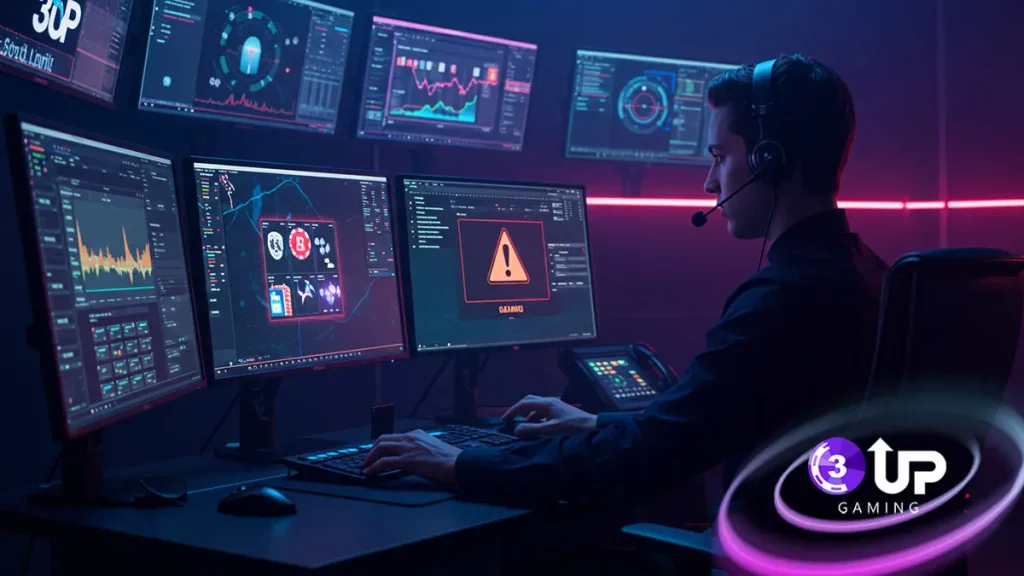
Human Intuition
For generations poker has been considered a game of incomplete information where subtle cues, emotional reads and gut feeling decide outcomes.
Humans have:
- The ability to sense tilt or weakness in an opponent
- Emotional intelligence to navigate bluff heavy dynamics
- Adaptability to non standard play styles and creative lines
From Fedor Holz to Phil Ivey some of the greatest players in history have built their careers on instinct rather than data streams.
AI Decision-Making
AI excels in probability. Bots don’t second guess or get flustered. They use vast hand histories, solver outputs and statistical logic to make optimal decisions at speed and scale.
- AI minimizes leaks in bet sizing
- Keeps perfect memory across sessions
- Never gets fatigued or tilted
- Executes near perfect GTO (Game Theory Optimal) lines
Result? In long matches AI tends to outperform even elite humans. But human creativity and psychology can still outperform AI in complex, exploit heavy environments especially those with unpredictable play.
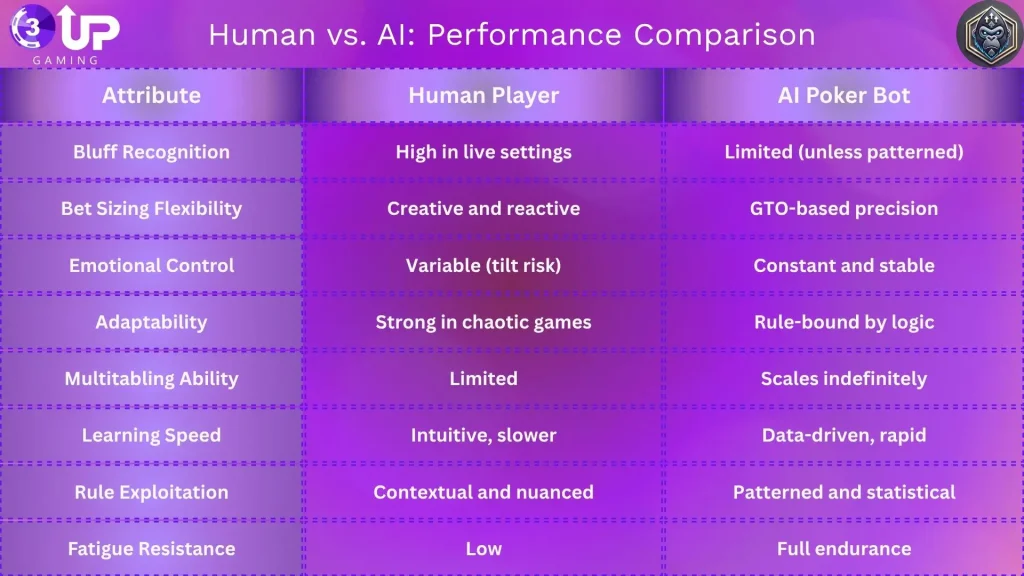
Who wins, then? The AI in isolated games. In the meta of resilience, bluffing, and storytelling? The human edge is still a myth.
The line between using tech to learn and using it to cheat… everyone, sites, regulators, players, is trying to manage that line. As AI gets better and better, how do we make sure games of skill still test human abilities, ingenuity, and resilience?
Want to prevent people from unfairly using bots on your site? Allow 3UP Gaming to build your secure, anti-bot poker world.
Read more about: Top Poker Software Developers for Building Winning Platforms
Explore more on CMU: AI vs. Humans: Libratus Defeats Poker Pros
FAQs about Poker Bots Smart Play
1. Are poker bots considered cheating?
Yes, use of bots on the majority of poker sites is considered illegal unless it is indeed permitted for certain purposes, like training an AI. Any unauthorized use of poker bots can be met with the sanction of an account ban or a lawsuit.
2. How can poker sites detect if a bot is being used?
Sites implement their separate periodic but ever-so-adaptively applied detection techniques like looking at behavioral patterns, IP clustering, timing analysis, or even hardware fingerprinting. Other times they are into manual audits of gameplay or depend completely on player reports.
3. Is it ever legal to use a poker bot?
Some legal bot use cases have existed in regulated research environments, AI testing, or simulation platforms. Bot usage for real cash poker is illegal unless the site enables such a feature.
4. Can bots outperform human players consistently?
They do in many regulated environments. With GTO (Game Theory Optimal)-keyworded bots, destruction of average players is pretty much assured-unfairly-enough. However, very good human players hold an edge in live and unpredictable settings.
5. What are the penalties for using bots on poker platforms?
Depending on the site and the jurisdiction, the penalties can vary from suspension of accounts and confiscation of funds to permanent banning or perhaps legal prosecution.
